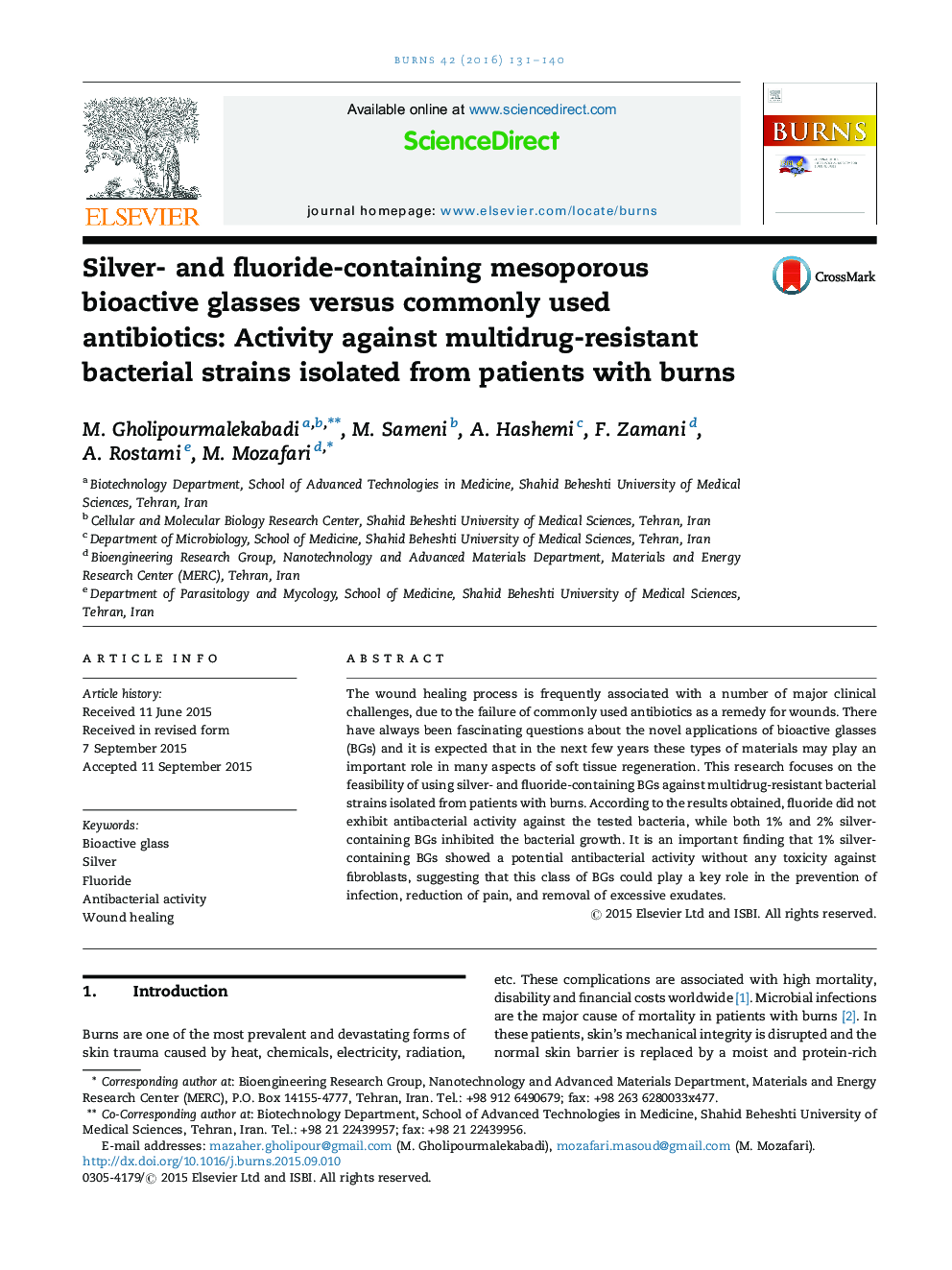| Article ID | Journal | Published Year | Pages | File Type |
|---|---|---|---|---|
| 3104181 | Burns | 2016 | 10 Pages |
•Use of an efficient antibacterial agent is critical during treatment of burn wounds.•Protection of burns against the resistant bacteria has remained challenging.•We synthesized a fluoride/silver bioactive glass as an effective antibacterial agent.•Effects of the bioactive glasses on the growth of resistant bacteria were tested.•Safety of the bioactive glasses was also examined in vitro.
The wound healing process is frequently associated with a number of major clinical challenges, due to the failure of commonly used antibiotics as a remedy for wounds. There have always been fascinating questions about the novel applications of bioactive glasses (BGs) and it is expected that in the next few years these types of materials may play an important role in many aspects of soft tissue regeneration. This research focuses on the feasibility of using silver- and fluoride-containing BGs against multidrug-resistant bacterial strains isolated from patients with burns. According to the results obtained, fluoride did not exhibit antibacterial activity against the tested bacteria, while both 1% and 2% silver-containing BGs inhibited the bacterial growth. It is an important finding that 1% silver-containing BGs showed a potential antibacterial activity without any toxicity against fibroblasts, suggesting that this class of BGs could play a key role in the prevention of infection, reduction of pain, and removal of excessive exudates.
Graphical abstractFigure optionsDownload full-size imageDownload high-quality image (136 K)Download as PowerPoint slide
